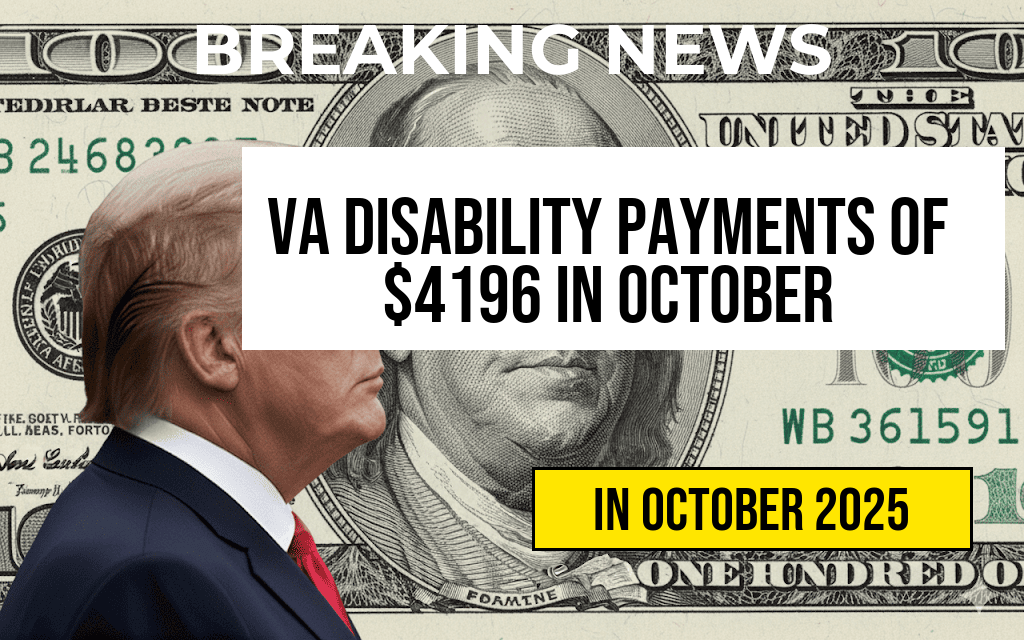Starting in the 2025 tax year, senior taxpayers aged 65 and older will become eligible for a significant increase in their tax deductions, with the potential to claim an additional $6,000. This adjustment aims to provide substantial relief to the growing population of retirees, many of whom face rising healthcare costs and limited income streams. The new provision is part of broader tax reforms designed to support older Americans, offering increased flexibility and financial security. Tax professionals and financial planners are advising seniors to prepare for these changes by understanding how the increased deduction might impact their filings. The update also emphasizes the importance of strategic tax planning for seniors, especially considering the interplay of other credits and deductions available to this demographic.
Details of the 2025 Deduction Increase for Senior Taxpayers
Who Qualifies for the Increase?
- Age Requirement: Taxpayers must be aged 65 or older by the end of the tax year.
- Residency: They must be U.S. residents or citizens for the entire tax year.
- Filing Status: The increase applies across various filing statuses, including single, married filing jointly, and head of household.
What is the New Deduction Amount?
The standard deduction for seniors will increase by $6,000 in 2025, rising from the previous threshold of $14,700 (for single filers aged 65+ in 2024) to $20,700. This adjustment effectively reduces taxable income, potentially lowering tax liability significantly for qualifying seniors.
Comparison Table of Standard Deduction Amounts
| Year | Single or Head of Household | Married Filing Jointly | Married Filing Separately |
|---|---|---|---|
| 2024 | $14,700 | $28,700 | $14,700 |
| 2025 | $20,700 | $34,700 | $20,700 |
Implications for Tax Planning and Retirement Strategies
Enhanced Tax Benefits
With the increased deduction, seniors can potentially lower their taxable income more effectively, especially those with moderate retirement savings or pension income. The larger deduction may also influence eligibility for other tax credits, such as the Retirement Income credits or the Earned Income Tax Credit (EITC), depending on individual circumstances.
Healthcare and Medical Expense Considerations
The rise in the standard deduction might lead some seniors to forgo itemized deductions, including substantial medical expenses. However, if medical costs surpass the new deduction threshold, itemizing remains advantageous. Seniors are encouraged to review their healthcare expenses carefully to determine the most beneficial filing approach.
Strategies for Maximizing Benefits
- Timing of Income: Consider deferring income to years with higher deductions.
- Tax-Advantaged Accounts: Maximize contributions to IRAs and Health Savings Accounts (HSAs) before year-end.
- Consultation with Tax Professionals: Personalized advice can help seniors navigate complex tax laws and optimize deductions.
Broader Context and Policy Considerations
Legislative Background
The increase in the senior deduction aligns with ongoing efforts to address the financial challenges faced by aging populations. Policymakers aim to bolster retirement security amidst rising healthcare costs and inflationary pressures. This change reflects a recognition of the need to provide targeted tax relief for those on fixed incomes.
Potential Future Changes
Tax laws are subject to periodic revision, and adjustments may be implemented based on economic conditions and legislative priorities. Experts suggest that seniors and their advisors stay informed through official channels, such as the IRS website, to remain updated on relevant changes.
Resources for Senior Taxpayers
Frequently Asked Questions
What is the new tax deduction available for senior taxpayers in 2025?
In 2025, senior taxpayers aged 65+ are eligible for an additional $6,000 deduction on their federal taxes, helping to reduce their taxable income.
Who qualifies for the additional $6,000 deduction in 2025?
Taxpayers aged 65 and older as of the end of 2025, who meet the general tax filing requirements, qualify for the additional deduction.
How does the additional deduction affect my taxable income?
The $6,000 deduction reduces your taxable income, potentially lowering your overall tax liability and increasing your refund or decreasing your amount owed.
Are there any income limits or restrictions for claiming this deduction?
Yes, income limits may apply; the deduction phases out at higher income levels. It’s important to review the specific IRS guidelines for 2025 to determine eligibility based on your income.
When should I claim the additional deduction on my tax return?
You should claim the additional $6,000 deduction when filing your federal tax return for 2025, typically using Form 1040 and associated schedules.










